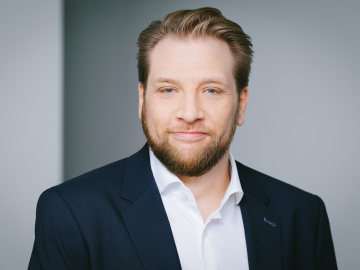DEEP becomes SPRIND partner for biomanufacturing innovation

The joint program between SPRIND and DEEP will deliver a specialized mentoring program for eight SPRIND Challenge teams chosen in 2023. These teams have embarked on a up to three-year innovation competition to develop comprehensive prototypes and commercialize breakthrough technologies in circular biomanufacturing, a field critical to sustainable development and innovation. Spanning from January to October 2024, the coaching and mentoring program includes four intensive session days, hosted primarily at the ESMT campus in central Berlin. The kick-off session on January 26 will be the start of candid and hands-on expert guidance, leading to clear roadmaps for each team, addressing their immediate and critical challenges.
Thorsten Lambertus, managing director of DEEP at ESMT, explains, “the mentors, all successful entrepreneurs, investors, and corporate decision-makers, with long-standing experience in circular biomanufacturing, ensure a focused approach to tackle the teams’ specific challenges. The primary goal is to place each team on a path to success by helping them set the right individual priorities.”
“This partnership showcases SPRIND’s commitment to invest into radically new solutions and future industries, while at the same time creating an innovation ecosystem with like-minded institutions,” Jano Costard, challenge officer at SPRIND. “The goal of this specific challenge is to establish novel biomanufacturing processes that utilize locally available (secondary) raw materials and are closed, sustainable, environmentally friendly system and resilient to market fluctuations,” Jano Costard further explains.
The inclusion of the Creative Destruction Lab (CDL) methodology is pivotal in the partnership with SPRIND and DEEP. CDL’s approach, known for its efficacy in fostering high-impact ventures, offers a structured, objective-based process that is critical for deep tech ventures and tech transfer projects. Leveraging this knowledge and expertise ensures that the SPRIND Challenge teams are equipped with the necessary tools and guidance to navigate the complex landscape they are operating in, ultimately leading to groundbreaking innovations that can reshape industries and contribute to a sustainable future.
About the DEEP Institute at ESMT Berlin
The Institute for Deep Tech Innovation (DEEP) is a legally dependent organizational unit and the "action tank" of ESMT. Its goal is to build innovative ecosystems that reshape technology transfer and pave the way for deep tech startups to scale globally. To this end, unique activities are developed and implemented for different verticals and together with partners from science, business, and the startup ecosystem along the entire value chain from basic research to "global champion". This all serves the mission of enabling a new generation of deep tech innovators in Europe.
About SPRIND
The Federal Agency for Disruptive Innovation, SPRIND, was created 2019 and is headquartered in
Leipzig, Germany. The sole proprietor of SPRIND is the German Federal government, represented by
the Ministry of Education and Research (BMBF) and the Ministry of Economic Affairs and Climate
Action (BMWK). SPRIND fills a gap in the German innovation ecosystem: it discovers novel, disruptive
technologies to address the greatest challenges of our time. SPRIND also ensures that the value
provided by developing radically new technologies remains within Germany and Europe. SPRIND is
financially supported with funding made available through the Federal budget. SPRIND is led by
Rafael Laguna de la Vera and Berit Dannenberg.
About ESMT Berlin
Quick links
